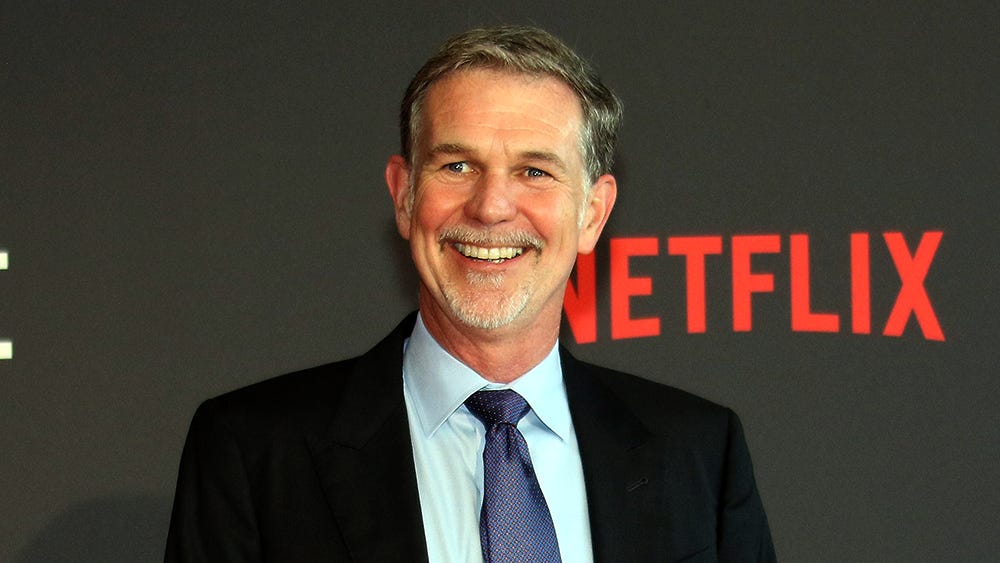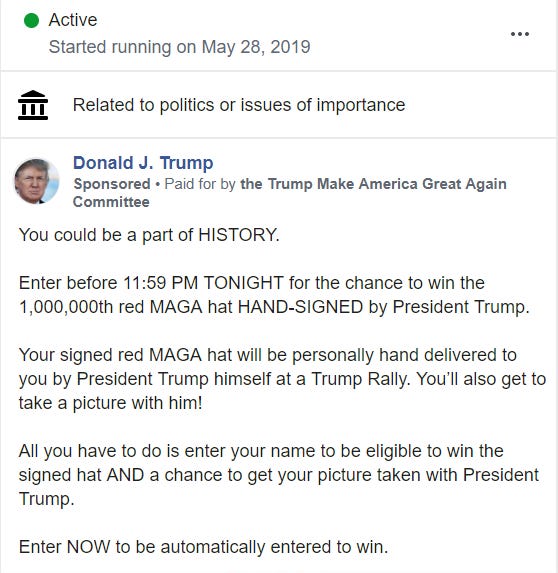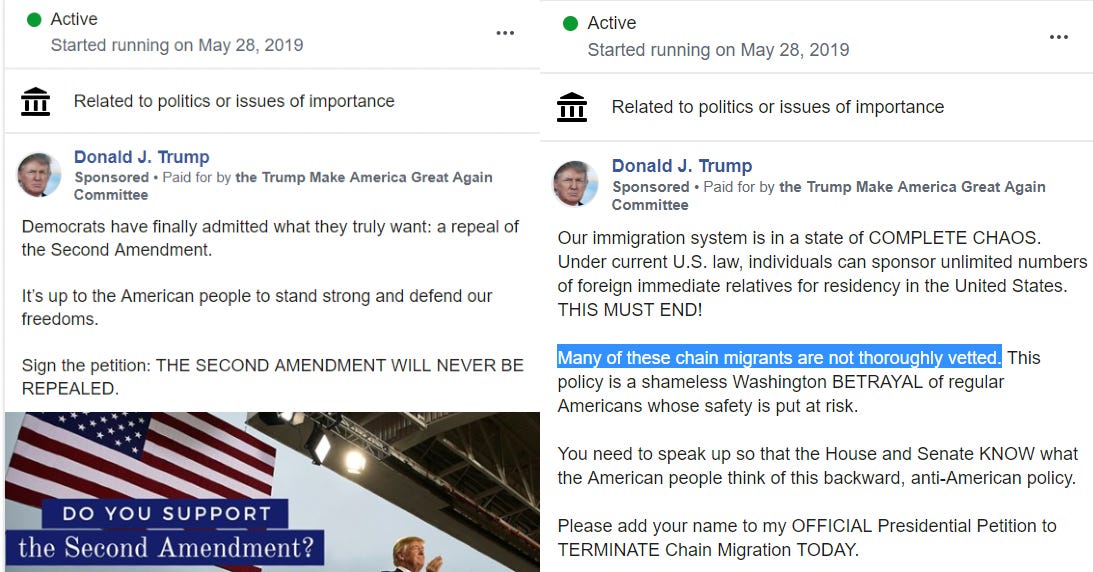Netflix's CEO has some explaining to do

Netflix issued a statement on Tuesday about Georgia's new abortion law, which bans abortions after six weeks. The company said that if the law survives legal challenges it may stop filming in the state.
We have many women working on productions in Georgia, whose rights, along with millions of others, will be severely restricted by this law. It's why we will work with the ACLU and others to fight it in court. Given the legislation has not yet been implemented, we'll continue to film there, while also supporting partners and artists who choose not to. Should it ever come into effect, we'd rethink our entire investment in Georgia.
The company is portraying itself in public as an unflinching supporter of abortion rights.
But, over the last 10 months, Netflix CEO Reed Hastings donated $143,000 to 73 Republican members of the Missouri legislature (and Governor Mike Parsons) who just passed an abortion ban nearly as restrictive as Georgia. (You can see a list of every donation HERE.)
Some dismiss these kinds of donations, accepting that powerful people donate equally to both parties. But, over the same period, Hastings only donated $10,700 to Missouri Democrats.
Last week, Parsons signed into law the legislation which bans abortion, even in cases of rape or incest, after 8 weeks. It is close to a total ban since many women don't even realize they are pregnant until 6 weeks. The legislation would have banned 84% of abortions performed in Missouri in 2017.
The bill also includes a trigger that would ban all abortion, except in the case of a medical emergency, if Roe v. Wade is overturned.
Hastings, who has previously supported Democrats, is likely interested in an effort to restore financial perks for TV shows and movies that are filmed in Missouri. (The state used to "tax credits to cover up to 35 percent of production costs if a studio spent more than $100,000 in the state" but the program expired in 2013.) One of Netflix's hit shows, Ozarks, is set in Missouri but is mostly filmed in Georgia, which offers generous tax incentives.
UPDATE (5/30): Through a spokesperson, Reed Hastings responded to this report. He defended his donations to 73 Missouri Republicans who voted for the abortion ban. The spokesperson told Variety that the donations were intended as support for a charter school bill.
Reed’s private support of educational causes is well known and these personal donations stem directly from that. All of these personal donations from Reed, on both sides of the aisle, were made in support of a specific piece of legislation aimed at improving the availability and quality of charter schools in Missouri.
The bill Hastings claims he was intending to support never received a vote.
There was nothing about Reed’s contributions that targeted them toward “educational causes.” His contributions help these legislators stay in power and advance their entire agenda, which includes the abortion ban. Reed even donated $1000 to Missouri Representative Nick Schroer, the sponsor of Missouri’s abortion ban.
Missouri's plan B
Missouri's new law, which is scheduled to take effect in August, will be challenged in court. If the judicial system ends up striking down the law, the state has a backup plan: refuse to license any abortion clinics. In that scenario, abortion would technically be legal but there would be no place to get one.
Missouri is already down to one abortion clinic. And now the state is refusing to renew its license, which expires May 31, according to Planned Parenthood. The group called the situation a potential "public health crisis."
This is not a drill. This is not a warning. This is a real public health crisis. This week, Missouri would be the first state in the country to go dark ― without a health center that provides safe, legal abortion care. More than a million women of reproductive age in Missouri will no longer have access to a health center in the state they live in that provides abortion care.
If the clinic is forced to shut down, Missouri would become the first state without a functioning abortion clinic since Roe v. Wade was decided in 1973. Planned Parenthood has sued to force the state to issue a license and a federal court will hear arguments on the issue today.
If the clinic closes, many women would have to travel hundreds of miles ― to Illinois or Kansas ― to receive an abortion.
How to close a clinic
Missouri's strategy to close abortion clinics is just to continue to add more licensing requirements until it is impossible to comply. The strategy is working. Ten years ago, Missouri had five abortion clinics and now it has one.
"This didn't happen overnight. It's been a slow drip of restriction after restriction, and we've been warning for some time that abortion access is on the line," Bonyen Lee-Gilmore, director of State Media Campaigns for Planned Parenthood, said. Lee-Gilmore described it as a "weaponized inspections process."
Many of the requirements have little to do with patient health. For example, nine states specify the size of the procedure rooms and eight states, including Missouri, specify corridor width. Missouri and other states also require "that abortion providers have admitting privileges at a hospital within 15 minutes of their clinic — a burden that reproductive health experts agree is medically unnecessary."
On May 20, the Missouri Department of Health and Senior Services demanded the clinic change who provided state-mandated counseling and perform an additional pelvic exam before an abortion procedure. Planned Parenthood agreed to do those changes.
But the state also demanded to interview seven doctors who provided services at the clinic as part of an investigation into "deficient practices." It provided no details.
Planned Parenthood agreed to make its two employees available to interview. But the other five doctors were residents in training and don't work for Planned Parenthood. With the state threatening future "criminal proceedings," the residents did not agree to the interviews.
The state's position is that it will not renew the clinic's license until the interviews are complete.
Other states not far behind
Missouri is not the only state where access to abortion depends on a single clinic. Kentucky, Mississippi, Missouri, North Dakota, South Dakota and West Virginia also only have one clinic.
Increasingly strict licensing requirements are having a dramatic impact across the country. Across the country, 51 clinics closed between 2011 and 2014. As of 2014, 39% of women age 15-44 lived in a county without an abortion clinic.
How the Trump campaign scams its supporters on Facebook
Facebook was supposed to hire thousands of additional people to review political ads. It's unclear whether these people were ever hired, but Facebook told Popular Information that it is relying primarily on "automated tools" to screen political ads before they run.
Excluding humans from the process, however, has allowed the Trump campaign to run whatever ads it wants on Facebook. It's now possible to watch the campaign scam its supporters in real time.
Today, March 28, the Trump campaign is running dozens of ads promoting a contest: "Enter before 11:59PM TONIGHT for the chance to win the 1,000,000th red MAGA hat HAND-SIGNED by President Trump."

The Trump campaign, however, also ran ads about the MAGA hat contest with a midnight deadline on May 27, 25, 24, and 23. It is a false deadline designed to mislead Trump supporters by a fabricated sense of urgency.

These ads appear to violate Facebook's rules which prohibit ads that include "Misleading or False Content."
Most of the time, coverage of Trump's tactics on Facebook involves misleading the public about an important political issue. But this is a standard grift that seeks to manipulate people to extract email addresses and, ultimately, money.
But Trump hasn't stopped using Facebook ads to mislead the public on hot button issues. Today he is running ads that claim Democrats want to repeal the Second Amendment (they aren't) and relatives of immigrants aren't thoroughly vetted before entering the country (they are).

This is why Trump spends a lot of time claiming that Facebook is biased against conservatives. His campaign can then violate the rules and, whatever happens, it helps him. If Facebook does nothing, the campaign gets to continue to run false ads. If Facebook acts, Trump claims that it is proof of bias, an issue that fires up his core supporters.
Ideally, Facebook would enforce its rules without regard to the public relations consequences. So far, however, Facebook is just letting the Trump campaign do whatever it wants.
Thanks for reading!



As soon as I publish this remark, I will be cancelling my Netflix subscription. I do not condone the behaviour of the CEO of Netflix. If he is willing to continue filming in states that try to regulate the bodies of women, then I am, as a woman, willing to stop funding his company.
I have cancelled my Netflix account. Woohoo!